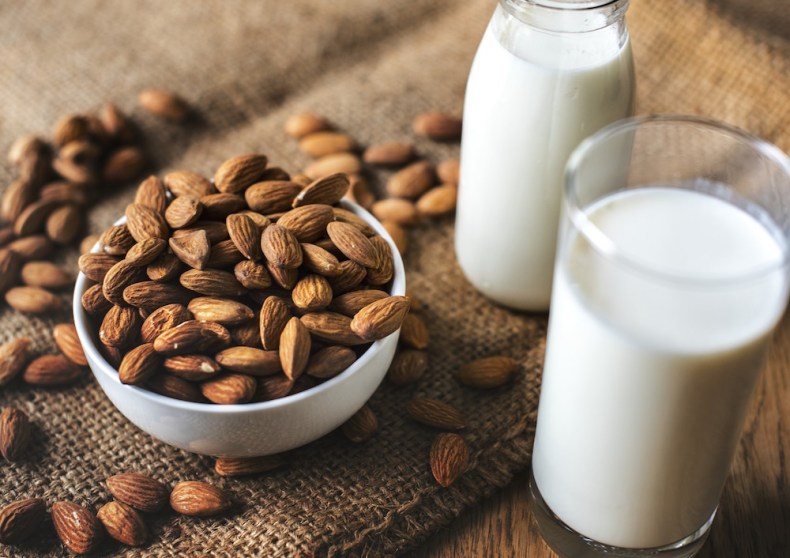Today, there are dozens of milk on the market, from dairy milk such as cow and goat milk to plant-based milk including soy and almond milk. Many people are under the impression that dairy milk is the best protein milk for keeping your teeth strong and healthy. However, lactose intolerance or cow milk protein allergy (CMPA) have prompted many to source for alternatives that are lactose-free.
Over the years, almond milk have been promoted as the best plant-based milk due to its low sugar content and high levels of calcium. It is also free of cholesterol and saturated fats, making it an excellent alternative to cow’s milk. But is almond milk good for your teeth?
The answer is a definitive yes, almond milk contributes greatly towards the health of your teeth. This is attributed to the high amounts of vitamin D, a fat-soluble vitamin that regulates calcium and phosphorus; these two minerals are the main components of hydroxyapatite, an inorganic mineral that forms the enamel.
The benefits of almond milk towards the teeth is compounded by the high calcium content present in the milk. That said, as almond milk do not contain a large amount of naturally occurring calcium and vitamin D, they are enriched by manufacturers to produce a product comparable to cow’s milk.
Will Almond Milk Whiten Your Teeth?
Just like how dairy milk will not make your teeth white, the same can also be said for almond milk. This is due to the fact that almond milk does not contain any substance that will aid the removal of stains on your teeth.
Furthermore, almond milk does not contain casein, a milk protein that has been proven to reduce the staining of the teeth caused by stain-causing beverages such as coffee and tea. In contrast, casein make up over 80% of the milk protein in cow’s milk.
Nonetheless, calcium-rich almond milk can aid remineralization, a teeth reparation process where calcium and phosphate ions are deposited at weakened areas of the enamel.
Nutritional Value
Almond milk is a dairy-free drink made primarily from ground almonds and water. Here are the nutritional value for a cup (240ml) of unsweetened almond milk:
- Calories: 35
- Fat: 2.5 grams
- Protein: 1 gram
- Carbs: 2 grams
- Fiber: 1 grams
- Calcium: 28% of the Daily Value (DV)
- Vitamin E: 110% of the DV
- Vitamin D: 18% of the DV
- Potassium: 4% of the DV
- Magnesium: 4% of the DV
- Riboflavin: 2% of the DV
- Phosphorus: 2% of the DV
As shown, almond milk is rich in vitamin E, a powerful antioxidants that promotes skin and eye health while preventing inflammation and lowering the risks of coronary heart diseases. The relatively high amount of vitamin D also help to improve bone health and reduce the chances of type 2 diabetes. Its low calorie count and carbs also mean that it is less likely to cause any spikes in your blood sugar.
How To Choose the Right Almond Milk?
If you’re looking to ditch dairy milk, almond milk is a great option. However, almond milk are now provided in a wide variety to appeal to consumers with different needs. Here are some tips to choosing the right almond milk for you:
- Choose for an unsweetened almond milk as they contain less sugar and carbohydrates.
- Select an almond milk that is enriched with calcium and vitamin D if you are replacing dairy milk with it.
- Choose one that is carrageenan-free. Some almond milk contain carrageenan, an additive extracted from red seaweed that is known to cause inflammation and digestive problems.
As a general rule, always select milk that have the shortest ingredient list. These products tend to exclude synthetic ingredients such as chemical thickeners, emulsifiers, and flavouring agents.







